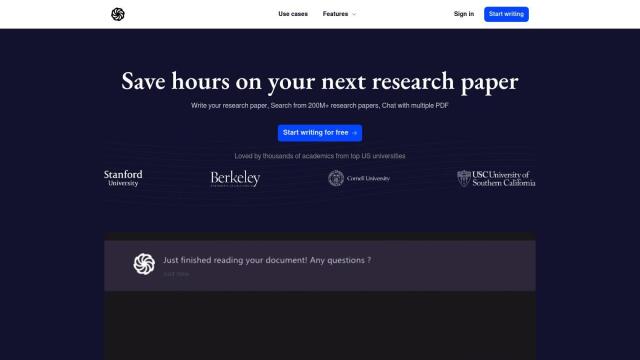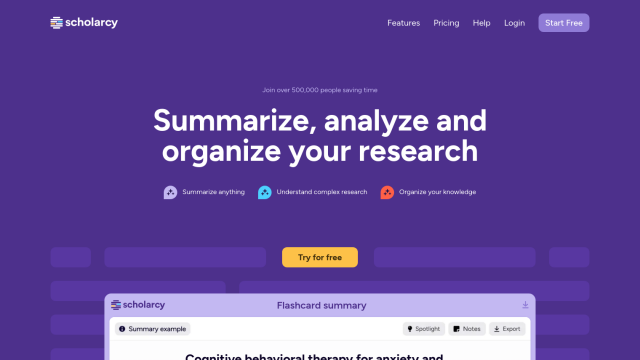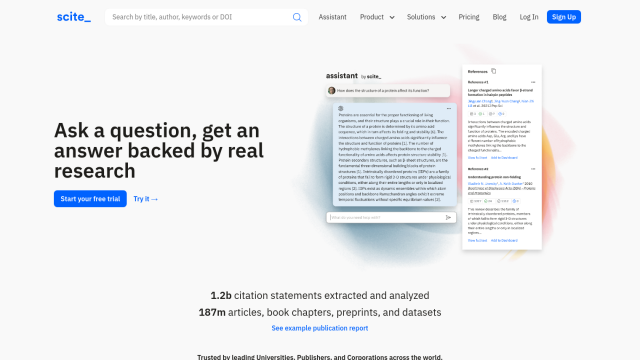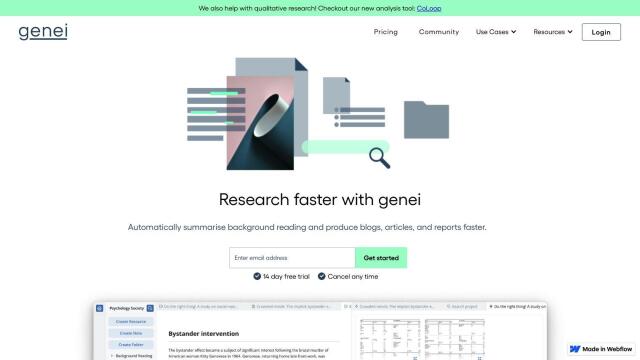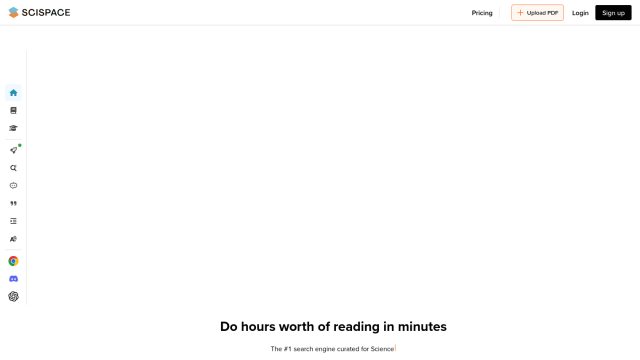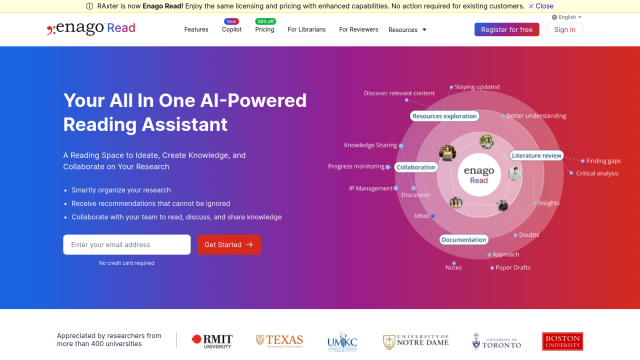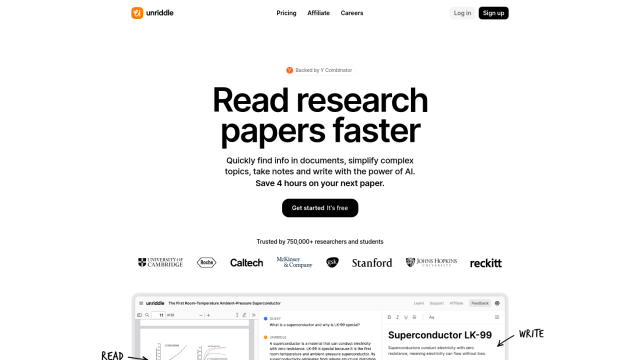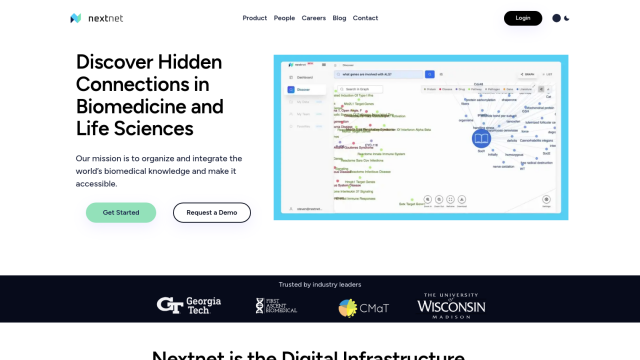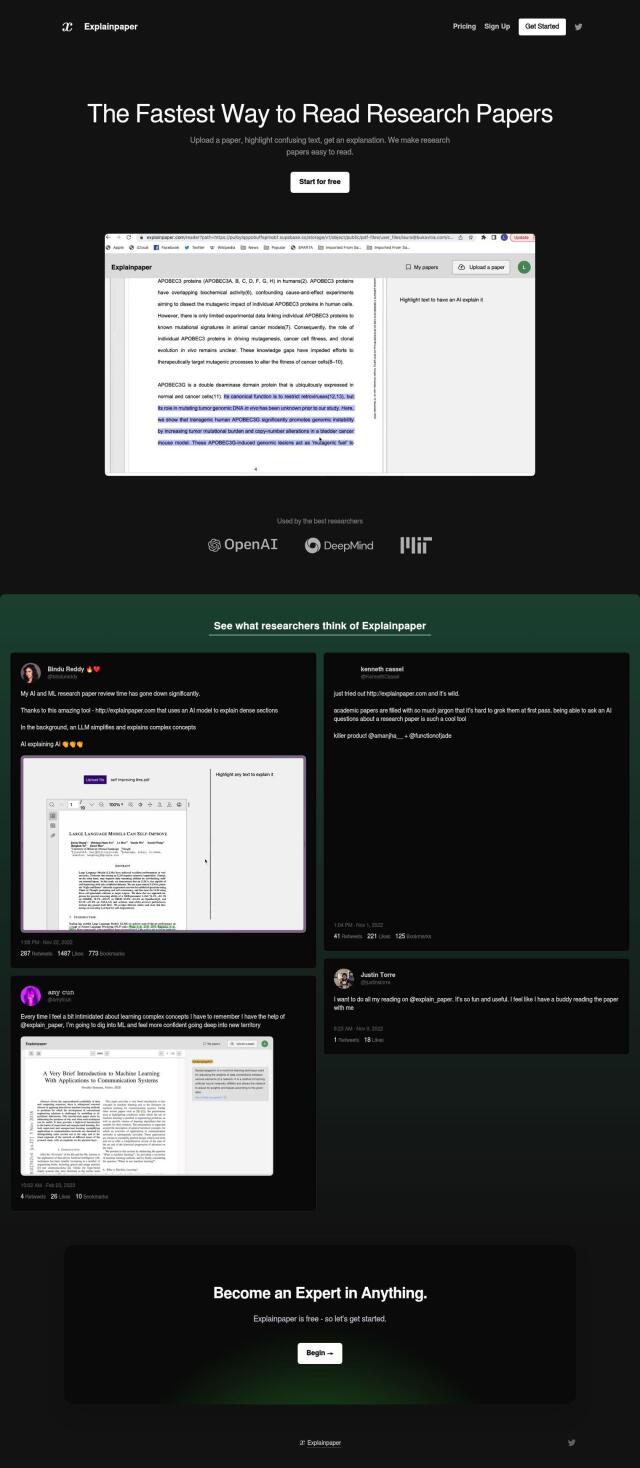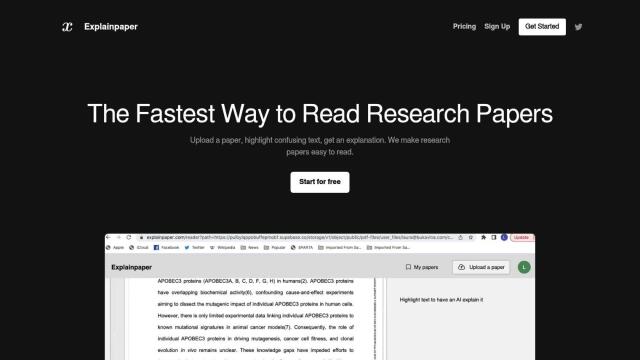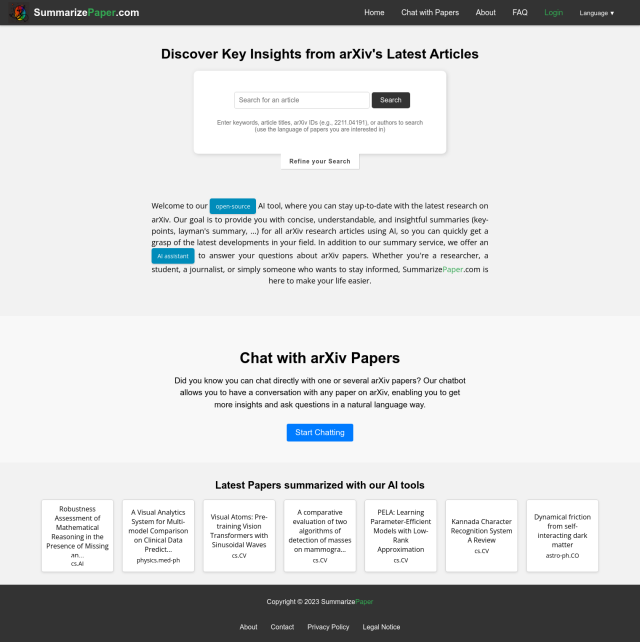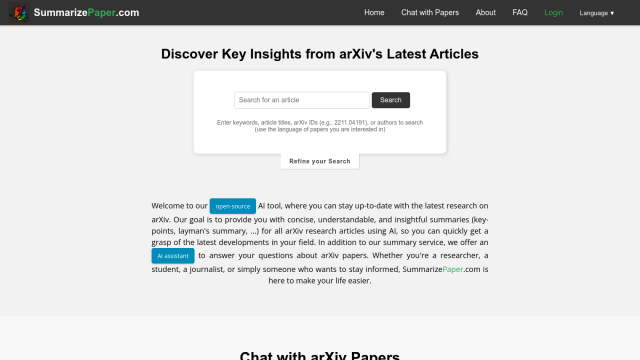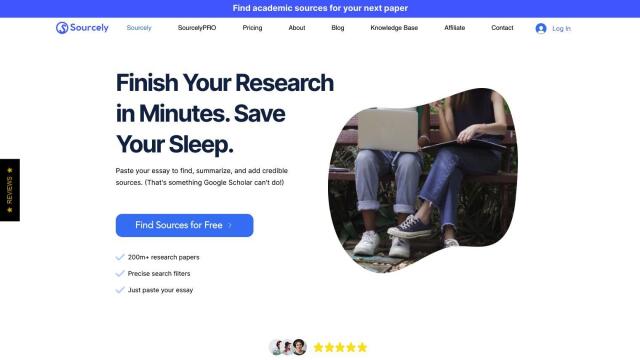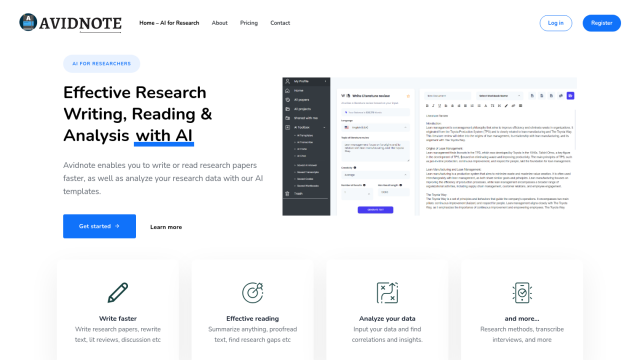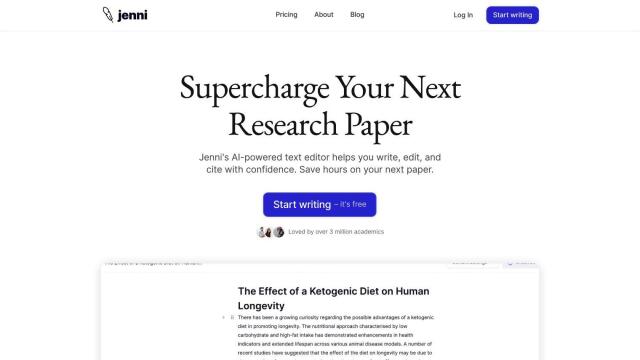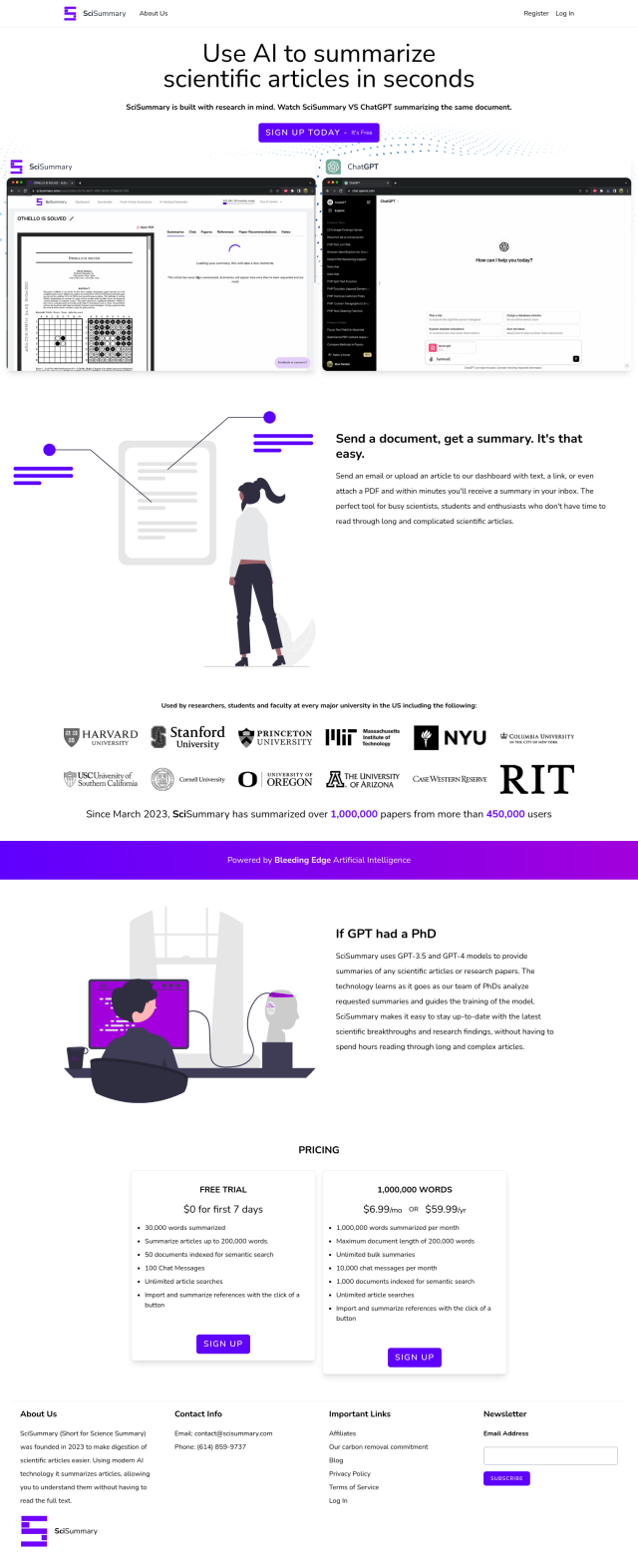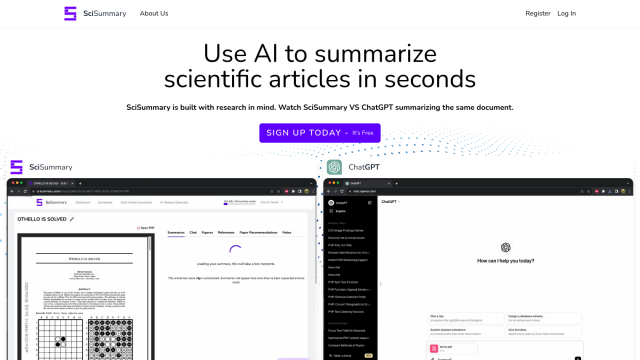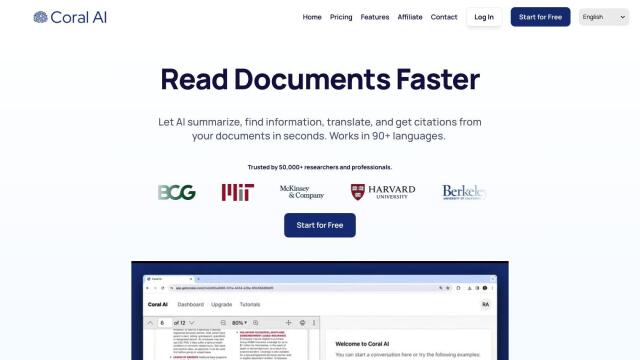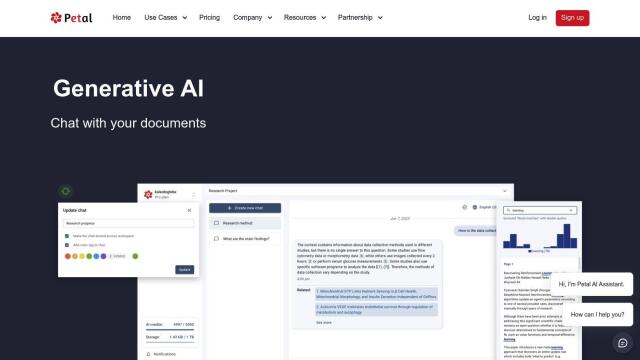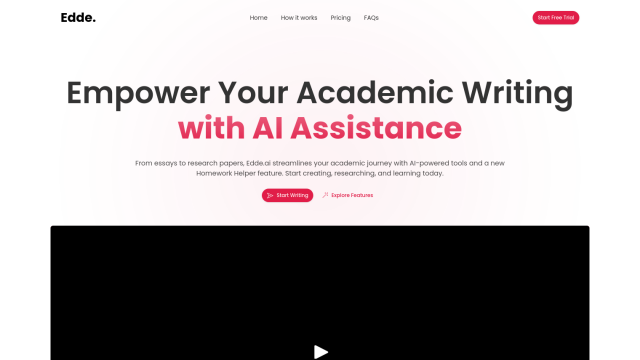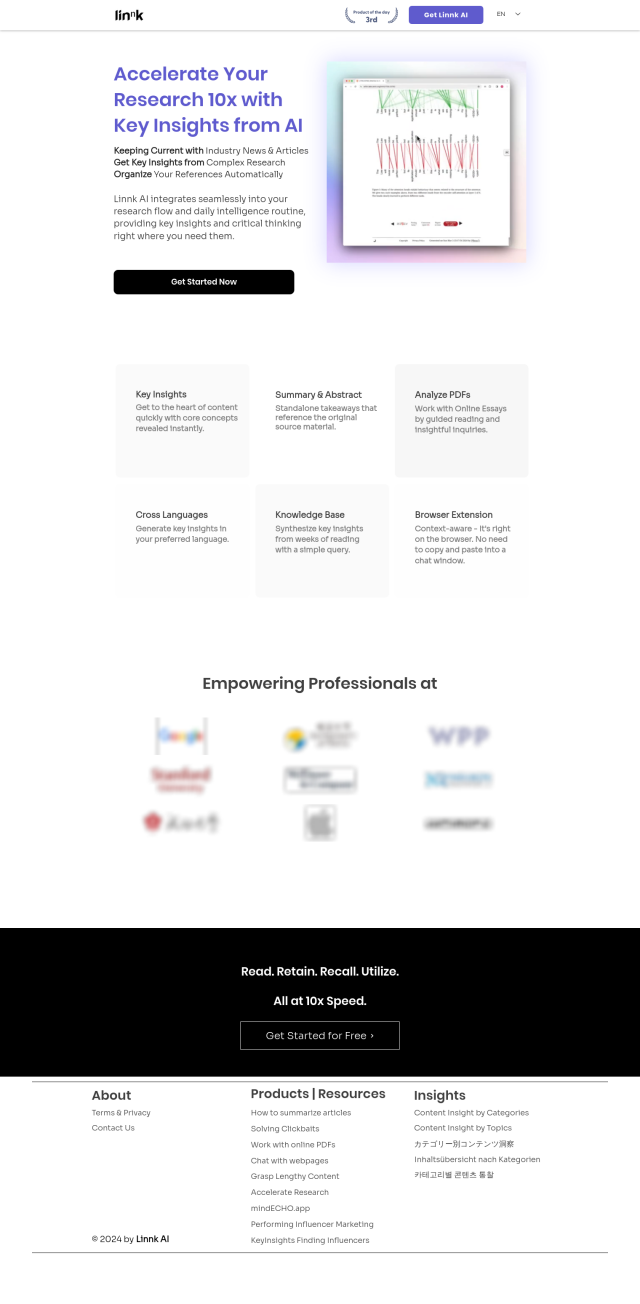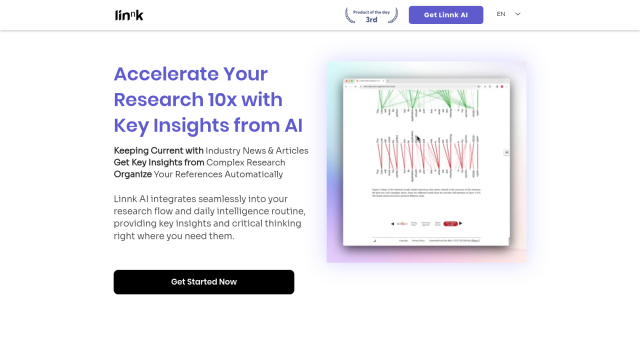Question: Is there a service that provides a comprehensive search function for academic papers and web sources, and also offers tools for analyzing and connecting related papers?
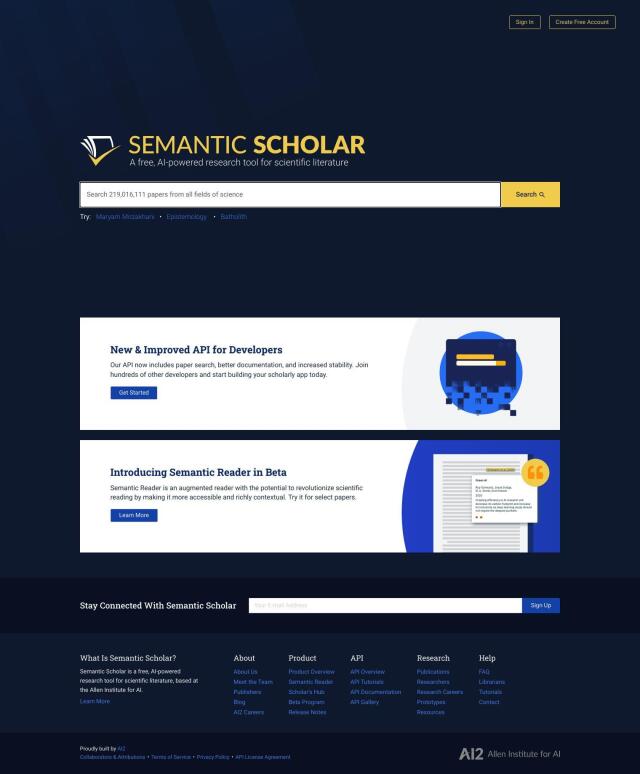
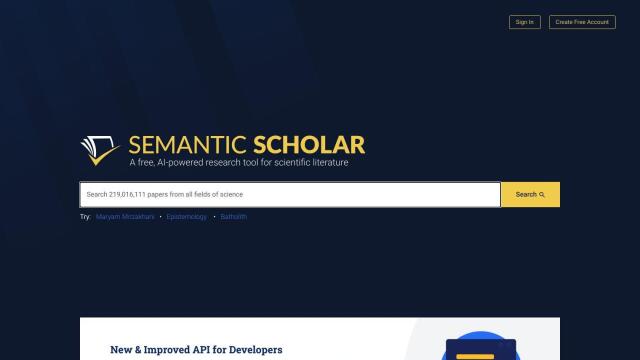
Semantic Scholar
If you want a full-featured search tool and tools to analyze and link related academic papers, Semantic Scholar is a great option. It's got a powerful search with a range of filters for different paper attributes, and it's got brief summaries (TLDRs) to help you evaluate papers. It's also got tools to cite papers in different citation styles, to organize papers into folders and to create AI-powered research feeds. You can also get paper recommendations based on your interests and set up automated email alerts for new citations and papers.

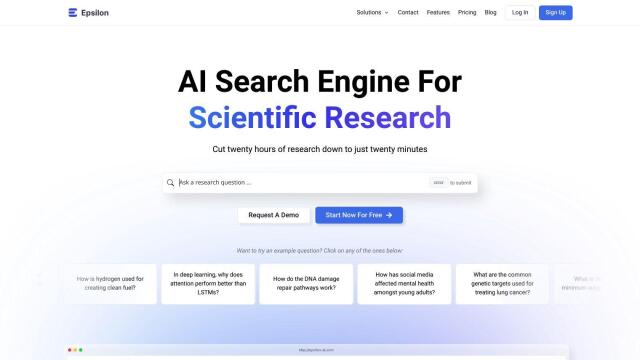
Epsilon
Another powerful option is Epsilon, which is designed to speed up scientific discovery by rapidly finding relevant citations and summarizing information. Its features include Investigate for summarized answers with inline citations, Search and Validate for structuring and extracting information from papers, and Synthesize for more detailed summaries. It's used by more than 30,000 researchers around the world, and has a variety of pricing tiers so it can be used for different levels of research.

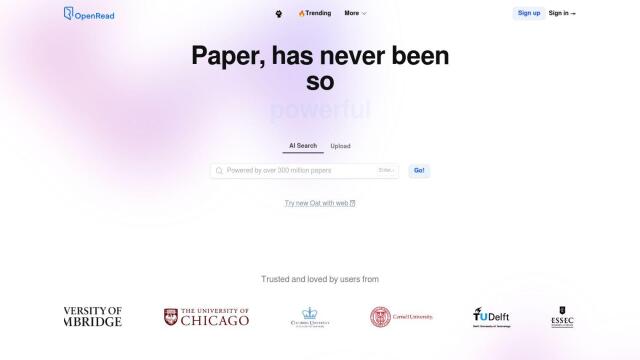
OpenRead
If you want something more interactive, OpenRead offers a powerful search interface with access to more than 300 million papers. It's got tools like Paper Espresso for summarizing paper content, Paper Q&A for asking questions about papers, and a Related Paper Graph to show relationships between papers. It's designed to help researchers stay current and improve productivity with its suite of features.

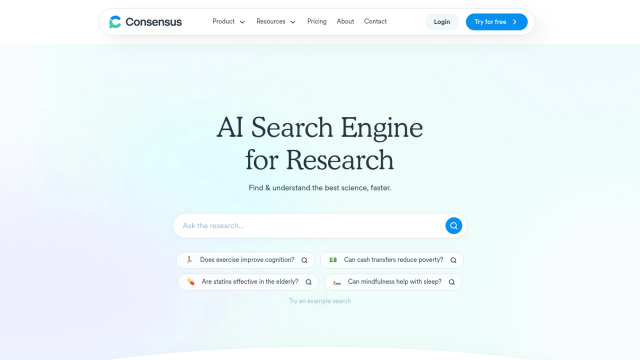
Consensus
Last, Consensus is another AI-powered search engine that helps you quickly find and understand the most relevant science and research papers. It's got proprietary search tools with filtering options and AI insights through Copilot and Consensus Meter. It's good for students, researchers and professionals who need to cut down on literature reviews and get authoritative answers.



